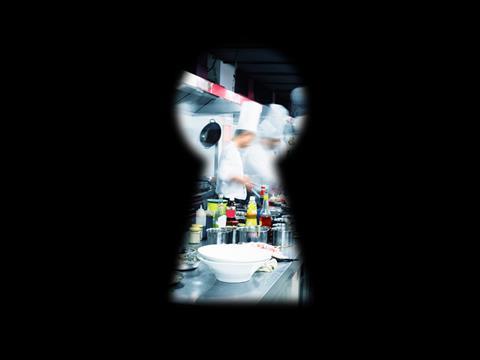
It’s not every day a chef swaps an award-winning Japanese restaurant in the West End to work in a nondescript kitchen in Wapping. But Benn Hodges is no ordinary chef. Two years ago, he was busy making a name for himself at London’s prestigious Roka serving up yellowtail sashimi and yuzu truffle dressing to high-end customers in the restaurant’s BBQ area, when City-worker-turned-entrepreneur Rahul Parekh approached Hodges with a very different career proposition. Parekh was on the hunt for a head chef at his new start-up, creating gourmet ready meals for home delivery from a kitchen with no ostentatious front of house, fine china or waiting staff.
“I honestly didn’t know what to expect,” laughs Hodges. “I remember having my interview on some cheap Ikea stools in front of the premises. I definitely didn’t know what a start-up was going to be like.”
The Ikea stools weren’t enough to deter him from what Hodges describes as a “great journey”, with the pair now at the forefront of an emerging food scene that has put takeaways online and in the ‘dark’.
Into dark kitchens, that is. Customers could pass by the EatFirst kitchen underneath a railway arch in Wapping without even realising. Yet from this premises Hodges and his Michelin-trained team prepare up to 3,000 high-end takeaway meals a day, served on demand in London or with 24 hours notice nationwide, at the click of a button. As Hodges says: “We do some pretty cool stuff in Wapping.”
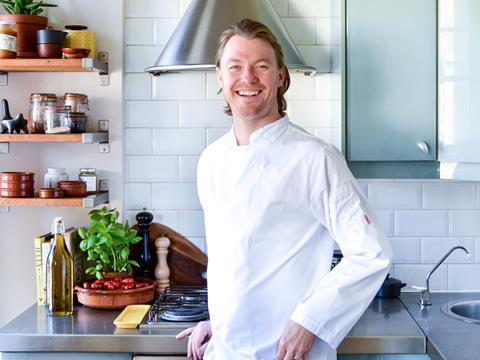
For Parekh, who quit his job as an executive director at Goldman Sachs to start up EatFirst, this is the future of food. “I would say it’s a natural evolution for the industry,” he says. “In fashion, we’ve had companies like Net a Porter and I think food is basically just a few years behind. With tech and the internet, why not have your whole brand online?
“Why do I need offline restaurants at all?”
Parekh’s belief in the pureplay online model is shared by many. In 2014, he convinced investors Global Founders Capital to inject cash into his business during a 6am breakfast at London’s Four Seasons Hotel, and went on to raise $8m (£6m) in funding.
Since then, several companies have sprouted up around the dark kitchen model including - most notably - Deliveroo with its Editions brand in 2016. It seems there is no stopping the trend. Yet there are question marks over how long it will continue to be a reliable meal ticket.
Virtual takeaways
The rise of dark kitchens comes largely down to timing. The concept in itself is nothing new. In fact, London company Deliverance (now closed) was operating a dark kitchen takeaway business as long as 20 years ago.
But there is a good reason why the phrase is suddenly on everyone’s lips. Firstly, the takeaway market is booming. Spend on takeaway food shot up by 34% from 2009 to 2016 to make the UK market worth £9.9bn, according to the 2017 Takeaway Economy Report, commissioned by online takeaway giant Just Eat. And this figure is set to rise to £11.2bn over the next five years. All this growth is propelling Just Eat into the realms of the FTSE 100 with a £5.5bn market value (making it bigger than Sainsbury’s).
Another factor in the favour of dark kitchens is the increasingly demanding UK consumer. No longer are households content with a takeaway supper of greasy chips or a radioactive red tikka masala. Customers expect the same high standards they receive in restaurants, and are willing to experiment with more adventurous cuisines, all of which opens the door for new players entering the market.
Parekh says this was a key driver behind starting up EatFirst. “I used to work long hours in the City and order lots of takeaways but there was this pain point that it was never as good as a restaurant,” he says. “It was all lukewarm greasy containers and I thought, surely this could be better?”
Takeaway boom
Not long ago, a restaurant or takeaway business needed its own fleet of drivers to make the model work. But that all changed in 2013, when Deliveroo offered a delivery service to restaurants that previously only operated on a front-of-house basis. One year later, UberEats joined the party. It wasn’t long before businesses that didn’t even have a front of house realised they too could profit from the takeaway boom. And so dark kitchens began to take off.
Entrepreneur Will Beresford co-founded his dark kitchens business FoodStars in 2015, just eight years after graduating from university. Starting out with one premises in East London, FoodStars has since grown to include 45 kitchens across four sites (its biggest single unit opening in October with 23 kitchens).
Around a quarter of the businesses using the kitchens are takeaway-only operations without any physical premises, while the rest are caterers, or cafés and restaurants who want extra space either to batch cook or concentrate on their delivery side.
Are restaurant dark kitchens deceptive?
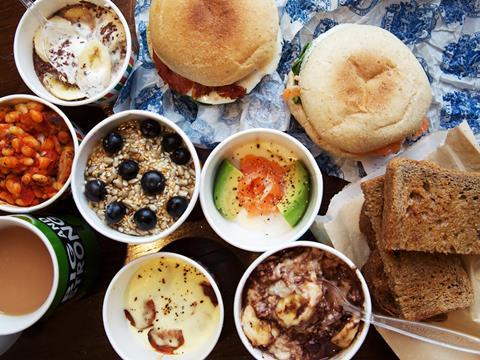
Restaurants have long used dark kitchens, though this was largely unknown until a Channel 4 investigation in 2016. Pizza Express was featured for preparing its pizza dough in a central bakery with the dough stretched and shaped into pizzas by its staff.
High street chain Leon also made an appearance for centralised production though the chain claimed the flavour “improved in the two to three days it takes to reach the restaurant”.
Regardless, the programme elicited some harsh criticism from consumers, with presenter and chef Simon Rimmer hitting out at the lack of clarity. “As a chef I think there are many good reasons for using central kitchens, mainly for maintaining consistency and quality,” he said. “But what I don’t understand is why they are not more up-front with customers.”
Beresford believes the dark kitchen model is ideal for food companies that are just starting out. Renting out a FoodStars kitchen costs between £1,500 and £2,500 per month - the lower option giving access to a kitchen for 10 hours a day, rather than the full 24. Businesses can commit for as little as three months initially and only need to give two months’ notice.
“We give these guys kitchens that come fully equipped with everything you need to start up,” Beresford enthuses. “That would cost a business tens of thousands if they set up themselves. With us, they can be here for six months. If it doesn’t work, it doesn’t, but at least they haven’t spent tens of thousands of pounds on fitting out a kitchen and they’re not tied into a 10-year lease.”
The only potential challenge he sees for new start-ups is the need for effective marketing. Takeaway businesses at FoodStars will typically partner with the likes of Deliveroo and UberEats to deliver their food and list their menus. But that won’t work alone. “You can’t just put yourself on a platform and expect to start selling food because customers need to know about you, even if you have a great product,” he says.
He admits a physical restaurant is effectively “an ad in itself”. In lieu of this concrete advertising, diner recommendations and reviews are key to success. “How other customers view you is the most important thing out there,” he stresses.
A prime example of how this can work is GymFood, a fitness food takeaway specialist that rents out one of the kitchens owned by FoodStars. “This guy’s ratings are as high as they can be - almost perfect - across various platforms. It’s probably taken about a year to build, but now hundreds of portions of food are going out on a daily basis.”
Getting those initial ratings is the hardest part, as catering business Dayan & Webb can testify. Unlike many other companies operating in FoodStars’ dark kitchens, its clients are corporate. It began by offering a small number of free lunches and breakfasts to the companies of friends and family. From that, it gained “honest feedback” and - most importantly - word of mouth. “It was brilliant because when we started, we didn’t need thousands of pounds of investment,” says co-founder Faye Dayan. “As we grew, we could move to a bigger space quite easily.”
This word of mouth, combined with a partnership with lead generator City Pantry, has seen its business thrive - it now does up to 400 portions of food a day. Still, the pair behind the business recognise it’s a tough environment. “We’ve seen a lot of companies come and go and we had early friends who are no longer operating,” adds co-founder Amy Webb.
Earlier this year, Deliveroo launched a proposition that seemed to remove this element of risk. Its Editions venture - which started out as a group of 30 dark kitchens across London, Brighton, Reading and Leeds - only recruited businesses that filled an unmet need in the area.
Even better, Deliveroo took care of all the marketing on top of delivery. Deliveroo has since expanded this ‘risk-free’ venture to include 50 more kitchens in London and its 27 partners include the likes of Franco Manca and Motu Indian Kitchen, a collaboration with Michelin-starred restaurateur Karam Sethi.
Some businesses certainly seem to have benefited. London pizza company Crust Bros was a takeaway-only operation when it began working with Deliveroo last April and, in the following six months, increased sales by 250%. The specialist has now built up enough custom to open its first premises in Waterloo.
Foodservice consultant Stefan Cosser has seen plenty of these success stories. It hasn’t always been a start-up building up a business and customer base from scratch either. In some cases, established restaurants have set up dark kitchens alongside their public facing presence to develop a successful takeaway trade on the side. “Dark kitchens are one of the biggest revolutions in the food industry in the last decade, if not two,” says Cosser, director of Food Innovation Solutions, which works with companies including Chilango, Giraffe and Coco.
Jumping on the bandwagon
However, he is cautious about recommending a business model that relies entirely on the dark kitchens trade - even in cases such as Deliveroo Editions. “I would just be a little bit careful before jumping 100% into it. You have to make sure you do futureproof it,” he says. As Cosser points out, these businesses are largely reliant on the likes of Deliveroo and UberEats to list their menus and conduct delivery services. The cost to businesses started out low, but Cosser says commission is rising (neither Deliveroo and UberEats would disclose their exact prices due to commercial sensitivity).
“You don’t control that margin,” he warns. “My worry is this is a little bit of a bubble and people are jumping on board but the people who control this are UberEats and Deliveroo. The order is going directly to them and the money from the customer goes to them. So it could become a problem in a few years’ time when people have invested and realise they can’t keep up with the overheads.”
Dark kitchens are certainly going nowhere for now. A business model that offers more choice to today’s time-pressured but more demanding consumer is tapping into all the right trends. With a solid marketing strategy and offer, start-up food brands can get their name out more effectively than ever before. But as the scene develops, it will be interesting to see who truly wins: the businesses creating the food, or the likes of Deliveroo pulling the strings behind the scenes.
Four success stories
EatFirst
Entrepreneur Rahul Parekh founded this business in 2014 with the aim of bringing a splash of Michelin-star expertise to the takeaway experience. From their Wapping kitchen, head chef Benn Hodges and his Michelin-trained team cook up dishes such as nagasaki vegetable noodles, yuzo miso salmon and grilled baby chicken (the latter won a 2017 Great Taste award). To counter the problem of lukewarm takeaways, the dishes are designed to be microwaved without losing their texture or flavour. Delivery is available on demand around London or within 24 hours nationwide, and EatFirst is in talks with major supermarkets over stocking its ready meals.
Dayan & Webb
Corporate caterers Dayan & Webb prepare high-end, bespoke breakfasts and lunches from their rented Foodstars kitchen in East London. Designed to bring “sophisticated and delicious” food to the corporate world, dishes include a bavette steak and truffle rice salad, a pumpkin, spinach & feta tart and poached egg with lentils, avocado & blackberries. Co-founders Faye Dayan and Amy Webb concentrate on the food, and use third-party delivery services such as Quiqup and Stuart to courier their dishes. By partnering with lead generator City Pantry and encouraging word of mouth, the business has grown to produce an average of 250 portions of food every day.
Crust Bros
Starting out as a small street food vendor, this pizza specialist has rocketed to fame since partnering with Deliveroo in April. The business grew by 250% in the following six months as Deliveroo helped turn it into a successful takeaway brand. By overhauling the menu and designing takeaway-friendly packaging, the business built up a cult following for its pizzas - ranging from a ‘pimped Margharita’ with buffalo mozzarella to its new brunch pizza with avocado and pesto. Its trademark ‘leopard-spot’ pizza crusts, made using the traditional wood-fired method, have become so popular that Crust Bros opened its first public-facing premises in Waterloo this year.
The Attendant
In the competitive London coffee shop industry, every inch of space must be used wisely. So when The Attendant established its three branches in Fitzrovia, Shoreditch and Clerkenwell, it didn’t set aside much space for kitchens. Yet customers still demand freshly prepared food; and using dark kitchens, The Attendant can meet this need. Its team of chefs, led by Michelin-starred exec chef Peter Gorton and head chef Richard Beasant, prepare food every day in its East London kitchen for immediate delivery to its three branches. The model is working so well that co-founder Ryan de Oliveira plans to increase its coffee shop estate to five by next summer.



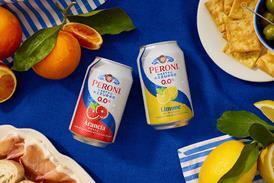



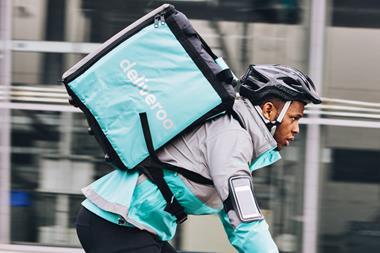
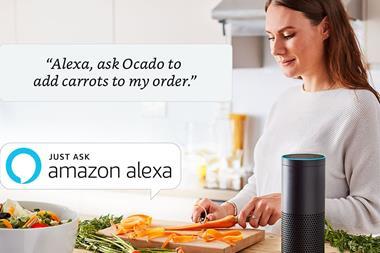
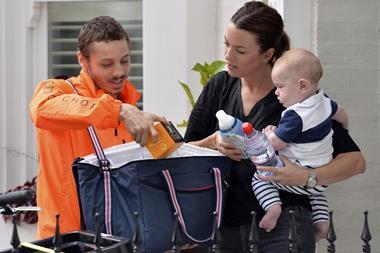
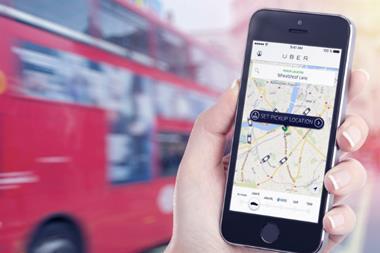

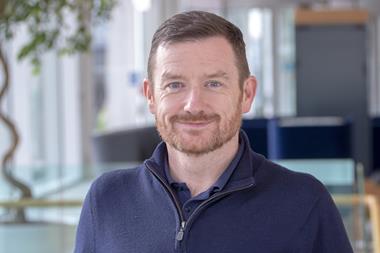

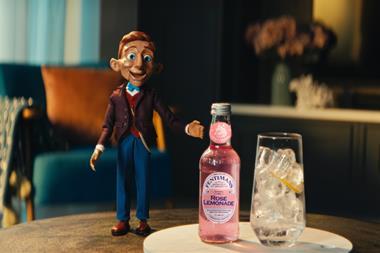

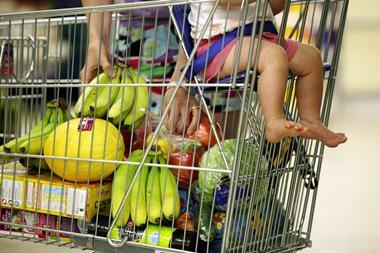
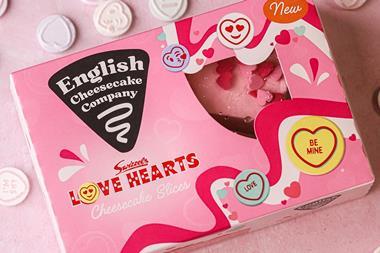

No comments yet